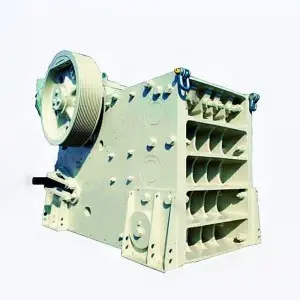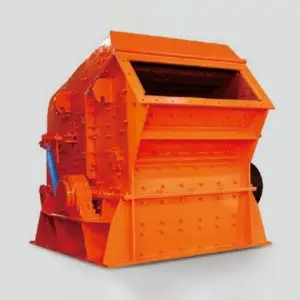The mechanical properties of minerals refer to the various properties that minerals exhibit when subjected to external forces. The mechanical properties of minerals are multifaceted, but the mechanical properties that affect the crushing of minerals are mainly hardness, toughness, cleavage and structural defects.
1, the hardness of minerals. The hardness of a mineral refers to the nature of the mineral’s resistance to external mechanical force intrusion. The basic particles of mineral crystals – ions, atoms and molecules are arranged periodically in space with geometric rules, and each period constitutes a crystal cell, which is the basic unit of crystal. The four kinds of bonds between the basic particles: atomic, ionic, metallic and molecular bonds determine the hardness of mineral crystals. The mineral crystals formed by different bonding bonds have different mechanical properties, and therefore also show different hardness. Minerals formed by different forms of bonding bonds show different mineral hardness.
2, the toughness of minerals. When the mineral pressure rolling, cutting, hammering, bending or pulling and other external forces, its resistance is called the toughness of the mineral. Toughness, including brittleness, flexibility, ductility, flexibility and elasticity, is a mechanical factor that has an important impact on the crushing of minerals.

3, mineral cleavage. Cleavage refers to the property of a mineral cracking into a smooth plane in a certain direction under the action of external forces. This smooth plane is called the cleavage plane. Cleavage phenomenon is an important mechanical factor affecting the failure resistance of minerals. Different minerals can have different cleavage, and the degree of cleavage in all directions of the same mineral can also be different. Cleavage is an important characteristic of minerals, and many minerals have this characteristic. The presence of cleavage can reduce the strength of the mineral and make the mineral easily crushed.
4. Structural defects of minerals. Mineral rocks in nature, due to the different ore-forming geological conditions or experiences, often lead to different mechanical properties of the same mineral produced in different places. The defects in rock and ore structure are one of the important reasons for this difference. This defect in the mineral structure often constitutes the fragile surface in the rock, so the crushing behavior will first occur on these fragile surfaces.
The ore produced in nature, except for a few of the single mineral ore, most of the ore with multi-mineral composition. The mechanical properties of single mineral ores are relatively simple. The mechanical properties of ores composed of various minerals are the comprehensive performance of the mineralogical properties of the components. The mechanical properties of the ore are very complicated. Besides the influencing factors mentioned above, the mechanical properties of the ore are also related to ore-forming geological processes, mining blasting and transportation, ore crushing stage and other factors.

Post time: Jan-01-2025
